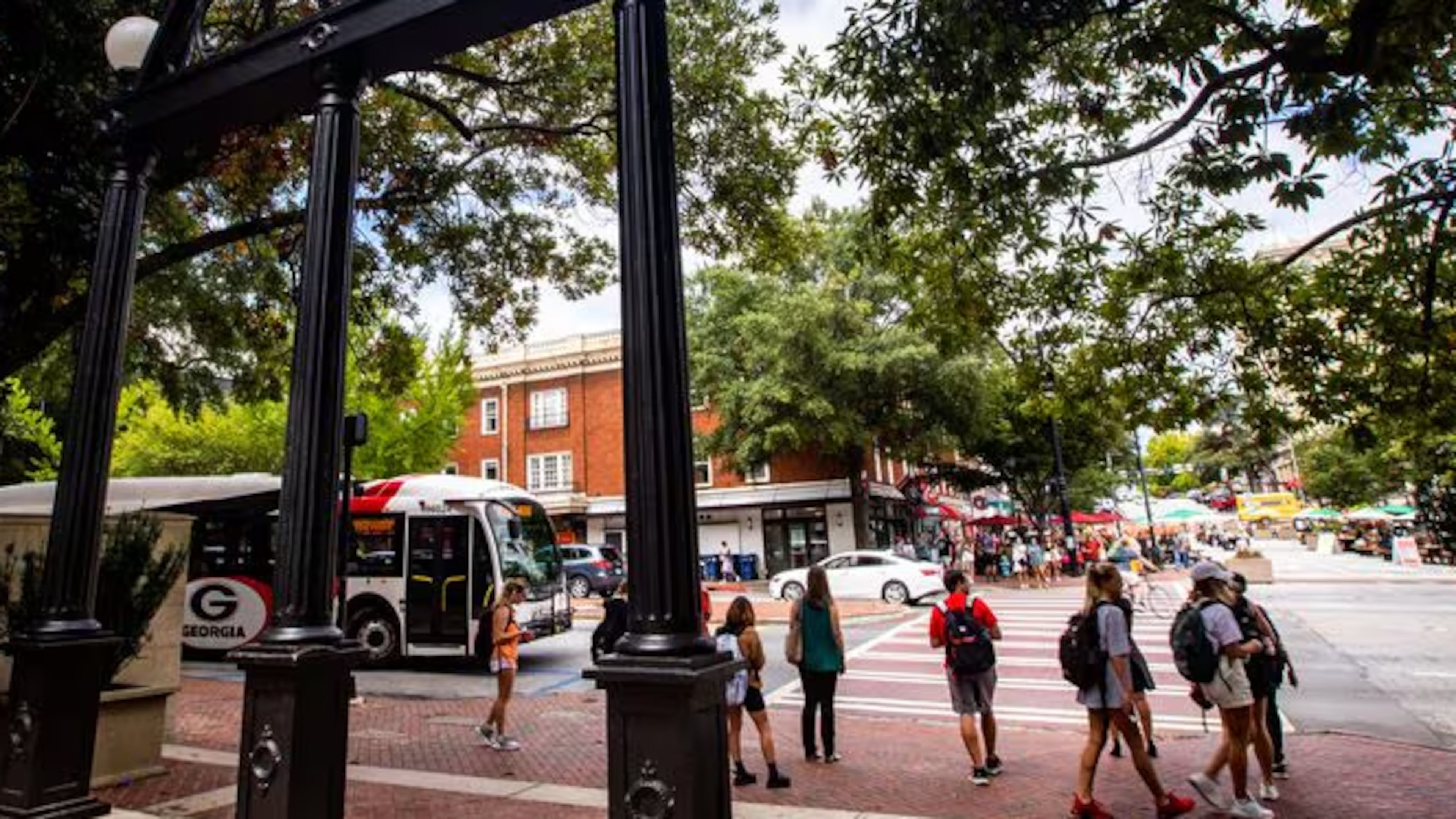UGA’s Sigma Chi fraternity under review after hazing allegation

The University of Georgia paused new membership activity at one of its fraternities after a hazing allegation.
In a complaint received by the UGA police department two weeks ago, two frats were accused of “gross student misconduct and abuse” and “hazing by male Greek Life leaders.”
“Incoming freshman were punched and forced to drink copious amounts of alcohol beyond their capacity,” reads the police report.
The accuser told UGA that the incidents took place on Aug. 9 and Aug. 10, a few days before the fall semester began, involving both Sigma Chi and Sigma Alpha Epsilon. The complaint does not specify which frat committed what infraction, apart from one line: “Sigma Chi had pledges send videos of themselves chugging alcohol to fraternity leaders throughout this summer.”
Because both fraternities are located off campus, UGA said it referred the matter to the Athens-Clarke County Police Department. While Sigma Alpha Epsilon has resumed activities following “a thorough review,” UGA said it has paused all new membership activity at Sigma Chi as Athens-Clarke police investigate. Athens-Clarke police said the investigation is still active but did not provide further details.
“Pausing all activity for an individual organization while a review is conducted is standard operating procedure,” UGA said in a statement.
Michael Church, executive director of the Sigma Chi International Fraternity, said in a statement that the organization was aware of the investigation and that the UGA chapter is “fully cooperating with both the University and local authorities.”
He added that the organization, headquartered in Illinois, will conduct its own investigation and is collaborating with UGA. “We will hold any members accountable who are found to be in violation of our policies or principles,” said Church. “Sigma Chi is committed to a healthy and safe fraternal experience for all members and prospective members and is a well-established leader in this regard.”
University spokesperson Rod Guajardo said depending on the results of the police investigation, the pause could be lifted or disciplinary action could be taken.
He added that there was a separate complaint filed at Sigma Nu, but the fraternity was able to resume new membership activity after a UGA police investigation.
Hazing has been a misdemeanor in Georgia since the Max Gruver Act was passed in 2021. Named after a Roswell native who died of alcohol poisoning during a fraternity hazing incident at Louisiana State University, it carries a penalty of a $5,000 fine and up to one year in jail.
Late last year, then-President Joe Biden signed a law to prevent hazing on college campuses. It requires universities to include hazing incidents in their annual security reports and identify student groups that violated the school’s anti-hazing policy. It also creates a definition for the term “hazing.”



